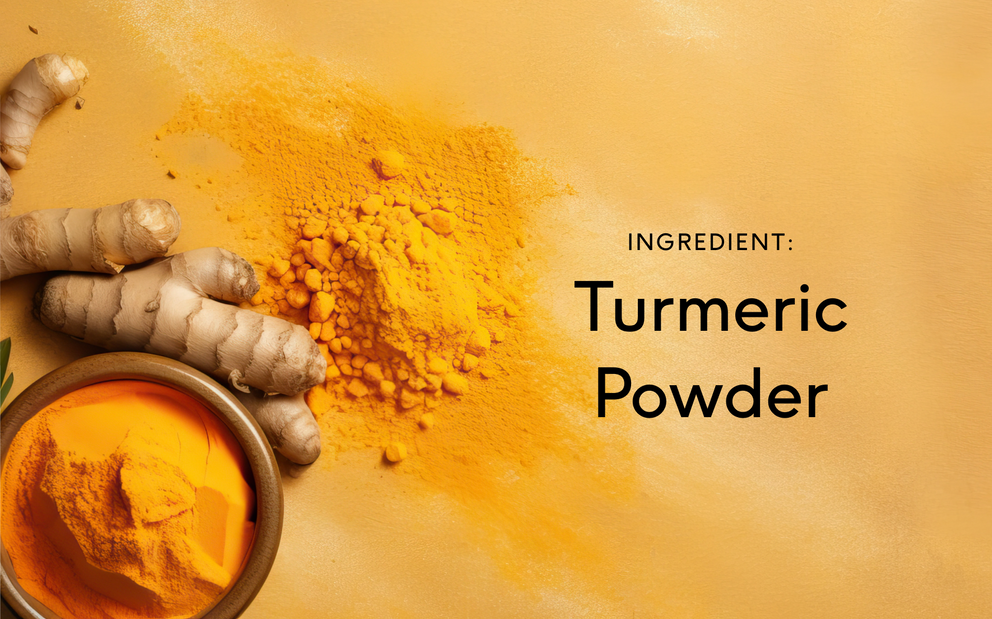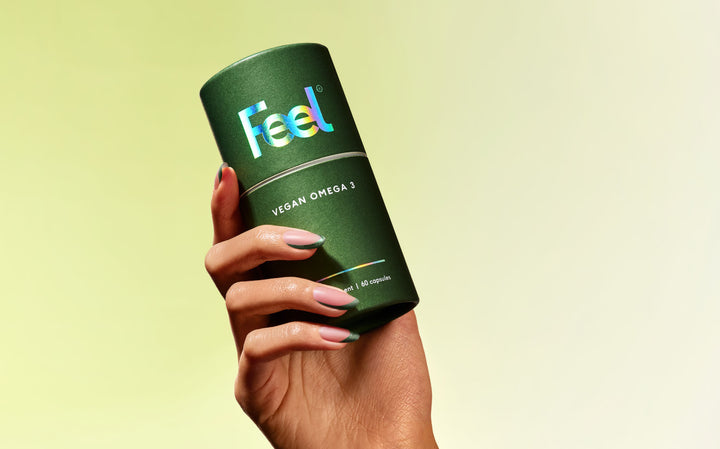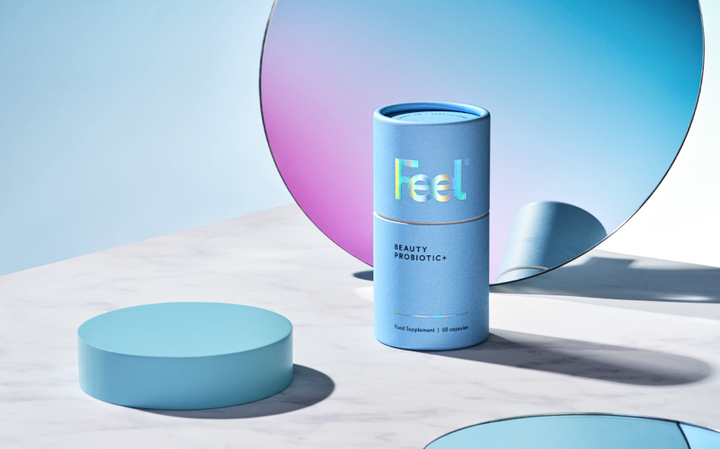Learn About Turmeric Powder in 5 Minutes
Table of contents

What is turmeric powder?
Turmeric powder is the dried and powdered form of the turmeric root, which has been used for thousands of years as a healing substance. This root contains curcuminoids, which are polyphenol compounds that reduce inflammation, fight back against heart disease and even reduce pain.
- Contains a powerful compound called curcumin
- Curcumin is a potent anti-inflammatory that may help with chronic pain and arthritis
- Used for thousands of years in Ayurvedic medicine
- Lowers your risk of heart disease to help you live a happier, healthier life
- Keeps your mind sharp by keeping neurological diseases and depression at bay
- Fights back against ageing
Why we love turmeric powder
Turmeric is one of the most amazing tools nature has given us to fight back against disease and ageing. This unassuming root contains an incredible substance called curcumin, and scientists are blown away by how effective curcumin appears to be at reducing inflammation and oxidative stress.
Whether you have a serious condition or you just want to stay healthy, turmeric is a powerful healing substance that you should make sure you have in your diet. However, it can be hard to include turmeric in every meal, which is why Feel contains the perfect dose of this natural healing substance.
We've included 50mg of turmeric extract in Feel Multivitamin, making it exceptionally easy and convenient to get your daily dose of turmeric.
From gut health to neurological health to heart health, turmeric and curcumin improve your well-being across the spectrum.
Unbelievable benefits of turmeric powder
Scientists have conducted nearly 300 studies to learn more about the effects of turmeric powder. Here are some of the top benefits of turmeric powder that researchers have discovered:
Cardiovascular Benefits
Curcumin inhibits the protein p300, and this inhibition has been shown to prevent heart failure in rat models by protecting against thrombosis, cardiac inflammation, and cardiac hypertrophy. Turmeric also reduces levels of sICAM, which contributes to atherosclerosis, in middle-aged people.
Turmeric supplementation appears to prevent the blood vessel damage that diabetes causes. Curcumin was also shown to improve blood flow in post-menopausal women. Furthermore, this substance appears to reduce chronically high blood pressure.
High levels of triglycerides increase your risk of stroke, and curcumin supplementation appears to reduce levels of triglycerides in your blood. Furthermore, turmeric powder has been shown to reduce cholesterol levels in healthy volunteers.
Neurological Benefits
DHA is a compound that protects your brain, and DHA deficiency can increase your risk of developing diseases like Alzheimer’s and Parkinson’s. Research indicates that curcumin supplementation increases DHA concentrations in the brain. Curcumin may also help you heal from traumatic brain injuries.
Corticosterone is a stress hormone, and turmeric appears to reverse the impaired cognition caused by this hormone. This substance may also reduce anxiety and depression.
In a six-month study, curcumin prevented the progression of Alzheimer’s symptoms. Turmeric also appears to reduce pain.
Anti-Aging Benefits
Autophagy is a process that helps you live longer, and curcumin appears to stimulate autophagy. In fruit fly models, the antioxidant effects of curcumin promote longevity.
Antioxidant Effects
Turmeric directly reduces the levels of free radicals in your body by sequestering superoxide. Importantly, lower doses of turmeric appear to be more effective at eliminating free radicals, which just goes to show that less can be more when it comes to supplements.
Curcumin has a particular affinity for the joints, helping to maintain the health of joints and bones, maintain joint flexibility, and contribute to joint health. That's why we've included 200mg of optimised curcumin extract in Feel Joints.
Is turmeric powder water-soluble or fat-soluble?
Turmeric is fat-soluble, which means that it takes your body a while to dissolve this substance, and it stays in your liver and fatty tissues for a significant period of time.
Where can turmeric powder be found naturally? Common sources of turmeric powder:
Turmeric root is the only source of curcumin and other curcuminoids.
3 foods/drinks containing turmeric
1. Raw turmeric root
2. Dried turmeric powder
3. Turmeric tea
What is the recommended daily intake for turmeric powder?
Since authoritative regulatory and research agencies do not recognise turmeric powder as an essential nutrient, there is no established recommended daily amount (RDA) for this profoundly useful substance. Some sources, however, indicate that consuming up to 200mg of turmeric powder per day is safe and beneficial.
Can you absorb enough of turmeric powder from food?
Unless you eat at an Indian restaurant every day, you might have trouble getting enough turmeric in your food. This root isn’t widely used outside of certain ethnic dishes, and depending on where you live, you might not have regular access to turmeric root or turmeric powder. To make sure you enjoy the benefits of turmeric every day without going out of your way to make significant dietary changes, it might be best to consume this substance in supplement form.
Why is turmeric powder necessary for your body?
As a potent antioxidant, your body needs turmeric to fight back against the action of free radicals in your body. If left unchecked, these harmful substances, called reactive oxygen species, will harm your cellular tissues and contribute to inflammation. Consuming plenty of antioxidants, such as turmeric, will help reduce inflammation, which reduces chronic pain and may even improve your overall resistance to disease.
Functions of turmeric powder
Neurological functions: Turmeric promotes DHA production, which is a neuroprotective compound. Turmeric also reverses the effects of corticosterone, and it appears to facilitate the healing of traumatic brain injuries.
Cardiovascular functions: Turmeric reduces your risk of heart attack, and it also improves your blood flow and reduces your triglyceride levels.
Anti-aging functions: Turmeric’s antioxidant effects improve your longevity, and this substance also appears to stimulate autophagy, which helps you live longer.
Symptoms of turmeric deficiency
Fatigue
Deficiency in antioxidants like turmeric can cause fatigue, which may result in feeling tired at day, difficulty sleeping at night, and difficulty concentrating.
Neurological Disturbances
Antioxidants protect your nervous system, and if you don’t consume enough antioxidants, such as turmeric, your mental health may decline or you might have trouble remembering things that happened recently or a long time ago.
Slow Wound Healing
Antioxidants are involved in wound healing, so not consuming enough turmeric or other antioxidants could cause slow wound healing. Severe antioxidant deficiency can even cause old wounds to reopen.
How long do you need to take turmeric powder to start experiencing its benefits?
You can generally start experiencing the antioxidant benefits of turmeric powder immediately after you start supplementing with this substance. If you’re trying to use turmeric to treat a serious condition, however, it may take a long time to start noticing results.
Consistency is key and our research recommends taking your Feel supplements for at least 3 months to allow your body to adjust and provide the desired benefits.
How long does it take for your body to digest/absorb turmeric powder?
Reliable data on the bioavailability of turmeric powder is not available. However, it’s well-established that turmeric powder only contains around 3% turmeric, and out of this 3%, only a small portion is absorbed by your body. Nonetheless, exact figures on the absorption rate of turmeric in turmeric powder are not available.
How long does turmeric powder stay in your body after you take it?
As a fat-soluble nutrient, turmeric powder stays in your body for a significant period of time. While the majority of the turmeric powder you consume will be excreted within 24 hours, a smaller percentage of this substance will stay in your body and accrete in your liver and other fatty tissues.
Is turmeric powder an antioxidant?
Yes, the potent antioxidant effects of turmeric are well-established. As an antioxidant turmeric donates electrons to free radicals, which provides these harmful atoms with full valences and prevents cellular damage.
Can you overdose on turmeric powder? What are the effects?
If you consume too much turmeric powder, you might experience negative physiological effects. For instance, excessive turmeric consumption has been linked to digestive issues, headaches, and nausea, and since the active ingredients in turmeric powder build up in the liver, too much of this otherwise beneficial substance can cause liver issues.
Furthermore, turmeric contains small amounts of oxalate, which means it could cause kidney stones at high doses. Some sources even suggest that excessive turmeric consumption could cause you to have a stroke, so it’s best to keep your ingestion of turmeric powder moderate by consuming 50mg of this substance every day in a capsule of Feel.
Does turmeric powder dissolve, flush out, or build up in the body?
The majority of the turmeric powder you consume dissolves and flushes out of your body, but trace amounts of this nutrient remain in your liver and fatty tissues.
Can you take turmeric powder during a diet?
Turmeric does not interfere with any dietary restrictions.
Are there synthetic forms of turmeric powder?
Scientists have successfully created a synthetic form of turmeric made from petroleum. Initial research indicates that this synthetic turmeric analogue is just as effective as natural turmeric.
Why might synthetic forms of turmeric powder be better?
Natural turmeric is metabolised and excreted rapidly, which results in limited bioavailability. Synthetic turmeric was developed to address these bioavailability issues.
Absorption rate of synthetic turmeric powder
According to preliminary research, synthetic turmeric may have better absorption than natural turmeric.
Why might natural forms of turmeric powder be better?
While the safety of natural turmeric in low doses is well-established, there are no reliable, long-term data on the safety of synthetic turmeric. Some sources are concerned that the petroleum-based nature of synthetic turmeric may cause unwanted environmental or physiological issues.
How to take turmeric powder
Turmeric powder can be taken in food, mixed in drinks, or ingested as a supplement.
Why everyone should be taking WeAreFeel supplements
Turmeric is one beneficial nutrient that most supplement manufacturers overlook. While it’s true that more research needs to be done to firmly establish the benefits of turmeric powder and the curcuminoids it contains, it’s clear that including this substance in your diet in moderation can offer a huge boost to your health and well-being.
Like many nutrients, however, supplementing with turmeric walks a fine line between beneficial and dangerous. In Feel, we only include the amount of turmeric you need to experience its positive effects without putting yourself in danger. Enjoy the benefits of turmeric without worrying about overdose or the potential dangers of synthetic turmeric with a daily capsule of Feel!
Here’s the Proof
- The dietary compound curcumin inhibits p300 histone acetyltransferase activity and prevents heart failure in rats
- Diverse effects of a low dose supplement of lipidated curcumin in healthy middle aged people
- Curcumin ameliorates high glucose-induced acute vascular endothelial dysfunction in rat thoracic aorta.
- Curcumin ingestion and exercise training improve vascular endothelial function in postmenopausal women.
- Oral supplementation of turmeric decreases proteinuria, hematuria, and systolic blood pressure in patients suffering from relapsing or refractory lupus nephritis: a randomised and placebo-controlled study.
- Effect of different curcuminoid supplement dosages on total in vivo antioxidant capacity and cholesterol levels of healthy human subjects.
- Curcumin boosts DHA in the brain: implications for the prevention of anxiety disorders
- Dietary curcumin counteracts the outcome of traumatic brain injury on oxidative stress, synaptic plasticity, and cognition.
- Curcumin reverses impaired cognition and neuronal plasticity induced by chronic stress.
- Multiple antidepressant potential modes of action of curcumin: a review of its anti-inflammatory, monoaminergic, antioxidant, immune-modulating and neuroprotective effects.
- Six-Month Randomised, Placebo-Controlled, Double-Blind, Pilot Clinical Trial of Curcumin in Patients With Alzheimer Disease
- Efficacy of turmeric (curcumin) in pain and postoperative fatigue after laparoscopic cholecystectomy: a double-blind, randomised placebo-controlled study.
- Curcumin protects DNA damage in a chronically arsenic-exposed population of West Bengal.
- Effect of turmeric and curcumin on BP-DNA adducts.
- Curcumin protects intestinal mucosal barrier function of rat enteritis via activation of MKP-1 and attenuation of p38 and NF-κB activation.




















































 Back
Back





